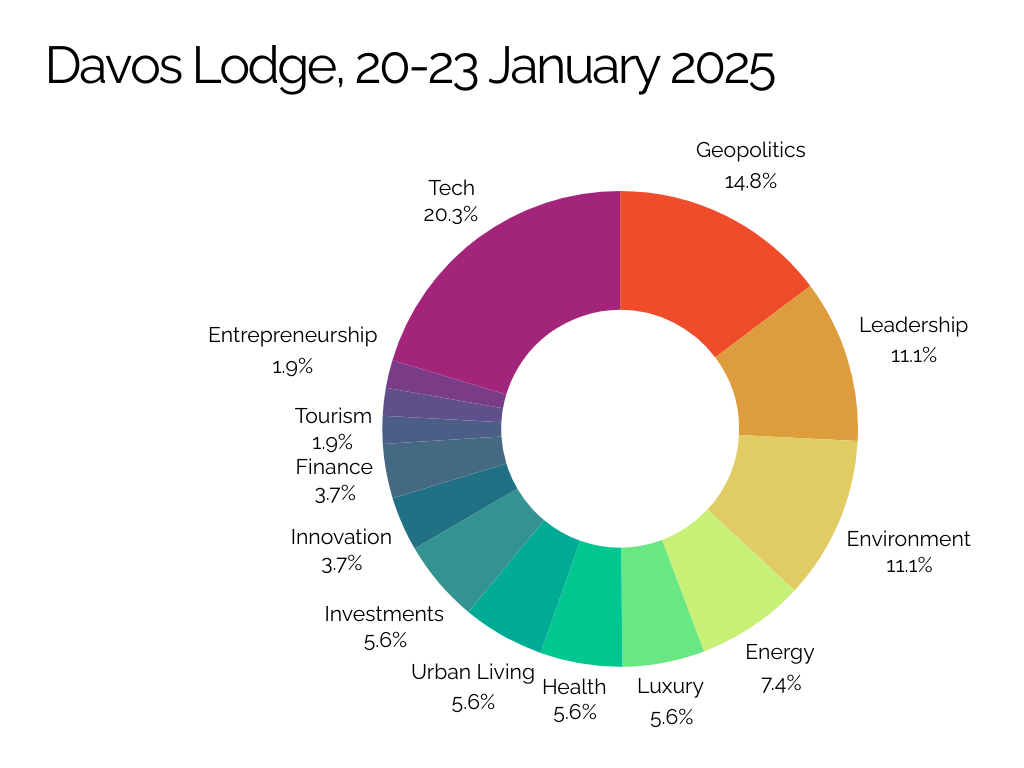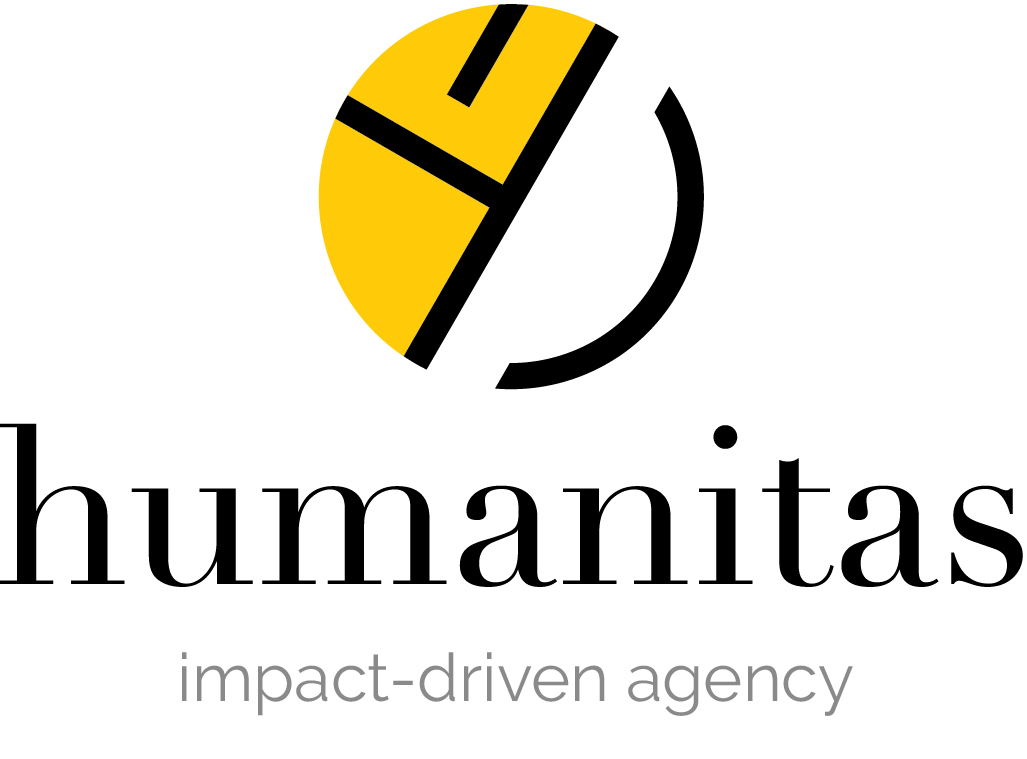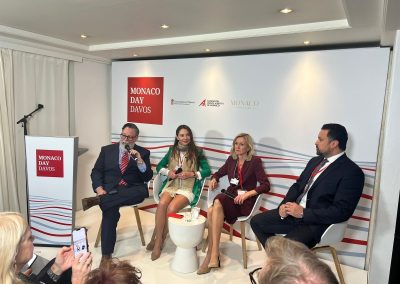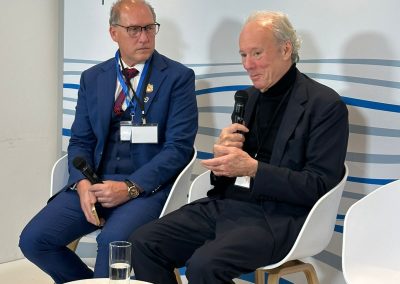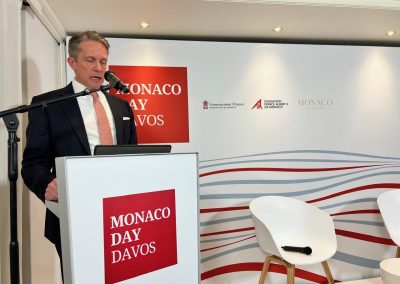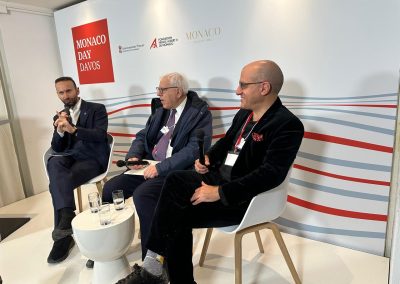Reflections on Davos Lodge and Monaco Day 2025: A Thrilling 4 Days of Innovation and Insight
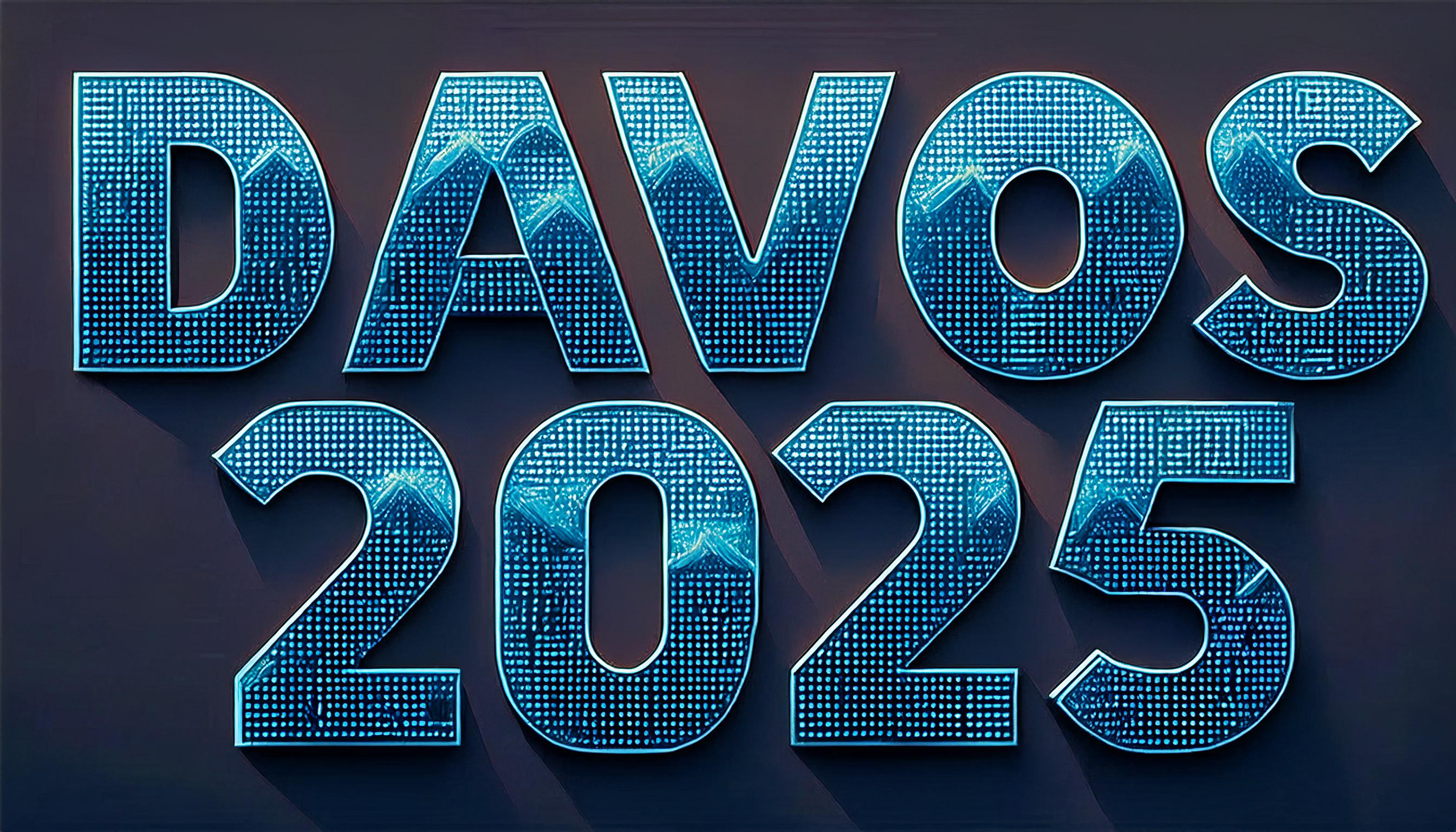
We had the privilege of covering Davos Lodge and Monaco Day in Davos 2025, two events timed concurrently with the World Economic Forum. These gatherings brought together global leaders, visionaries, and innovators to tackle pressing global challenges. From groundbreaking advancements in technology to redefining leadership in a turbulent world, these events showcased diverse perspectives and creative solutions. Monaco Day, in particular, highlighted the Principality’s dedication to sustainability and international collaboration.
Key themes emerged across the agenda: Technology (20.4%), Geopolitics (14.8%), Leadership (11.1%), Environment (11.1%), and Energy (7.4%). Sustainability served as the cornerstone of every discussion, emphasizing ecological and social responsibility as a pathway to global progress.
Clean Energy: A Foundation for Resilience and Growth
Clean energy is not just a necessity for mitigating climate change—it’s a critical driver for economic prosperity and geopolitical stability. For Europe and the world, moving forward with clean energy solutions is imperative to ensure resilience against future disruptions and reduce dependency on volatile external energy markets. Many early-stage startups in the clean energy sector are poised for growth but require support to scale up and make a global impact.
“I really encourage public policy to somehow price in security, resilience, and competitiveness—not just immediate short-term costs, but also what it means to rely on sustainable energy systems that reduce dependence on others,” said Ann Mettler, VP at Breakthrough Energy Europe.
Speakers emphasized the need for strategic public policy, innovation, and cross-sector collaboration to accelerate the development of clean energy technologies. By prioritizing investment in renewable energy infrastructure and fostering partnerships between governments and private enterprises, Europe can lead the way in building a sustainable and competitive future.
Circularity and Sustainability
“Nature doesn’t have resources—it has sources. It is our responsibility to turn those sources into resources through thoughtful reuse and regeneration,” remarked William McDonough, Founder of Cradle to Cradle.
McDonough outlined his groundbreaking framework for a circular economy. He emphasized the importance of designing products and systems for their next use, ensuring they support circularity and sustainability. This vision is encapsulated in the 5 Goods of the Cradle to Cradle Theory: Good Materials (Material Health), Good Economy (Product Circularity), Good Energy (Clean Air and Climate Protection), Good Water (Water and Soil Stewardship), and Good Life (Social Fairness).
These principles, coupled with standardized certifications such as Cradle to Cradle Certification—recognized globally for influencing design and consumer behavior—highlighted the tangible pathways to achieving sustainability.
The Urgency of Environmental Action
The triple planetary crisis of climate change, biodiversity loss, and pollution took center stage, with passionate calls to protect marine ecosystems.
“Without the ocean, there is no future. A healthy ocean is the foundation for addressing the fundamental problems we face today—feeding people, ensuring healthy populations, and sustaining the symbiotic relationship with our life-support system,” urged Fabien Cousteau, renowned ocean conservationist, aquanaut, and founder of Proteus Ocean Group.
The Role of the Prince Albert II of Monaco Foundation
Romain Ciarlet, Executive Director of Prince Albert II of Monaco Foundation highlighted the Foundation’s global efforts to protect the environment by addressing climate change, biodiversity loss, and pollution. With offices worldwide, the Foundation’s approach spans:
- Philanthropy: Supporting projects that lack traditional economic models.
- Advocacy: Driving systemic change through positive lobbying.
- Impact Investments: Advancing initiatives like ReOcean to achieve measurable outcomes.
This approach underscores the necessity of uniting philanthropy, policy, and investment to restore ecosystems, tackle the climate crisis, and foster sustainable development.
AI and the Future
The transformative potential of artificial intelligence was a recurring theme. Jack Hidary, CEO of SandboxAQ, highlighted the critical role of interdisciplinary expertise: “We need universities to prepare future leaders who are bilingual—not in the linguistic sense, but in having strong domain expertise in one area of STEM while also understanding how to apply AI and computational tools to that field.”
These remarks underscored the need for a new generation of innovators equipped to leverage AI for societal and environmental progress.
These four days of exchange were a powerful reminder that achieving a sustainable, equitable future requires bold ideas, collective effort, and partnerships across sectors. Davos Lodge and Monaco Day 2025 left an indelible mark, inspiring action toward meaningful change.
